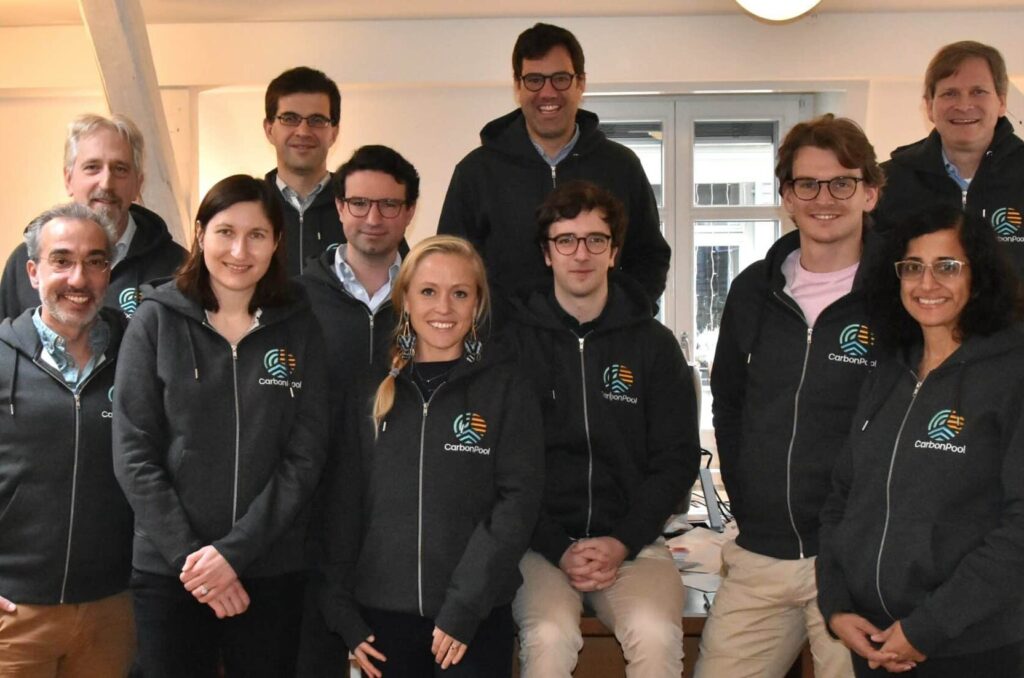The venture, which aims to assure companies purchasing carbon credits of receiving the permits they’ve procured, has closed the largest European climate-focused seed funding round in over a year.
In a recent announcement, CarbonPool revealed it raised 10.5 million Swiss francs (US$12.17 million) in its latest funding round. Heartcore Capital and Vorwerk Ventures led the investment, with support from HCS Capital, Revent Ventures, and former Allianz board members Axel Theis and Christof Masher. According to industry tracker PitchBook, this funding round ranks as the second-largest climate finance seed funding globally and the most significant in Europe since the beginning of 2023.
CarbonPool’s innovative approach ensures that companies purchasing carbon credits will receive the permits they’ve ordered, even if the issuer fails to deliver them. This assurance is particularly critical in scenarios where, for instance, the forest backing a credit is devastated by wildfires. The company intends to achieve this by acquiring high-quality carbon credits, maintaining them on its balance sheet, and disbursing them when necessary.
Nandini Wilcke, Co-founder and Chief Operating Officer of CarbonPool, highlighted the prevailing uncertainty surrounding the delivery of permits, which impedes market expansion. She said that buyers currently face discomfort due to the lack of assurance that the offsets they purchase in advance will materialise as expected, influencing their financial disclosures and operational decisions.
CarbonPool’s endeavour signifies a significant step forward in addressing uncertainties within the carbon credit market, potentially enabling companies to confidently fulfil their emissions reduction commitments while fostering market growth and sustainability initiatives.
Carbon Pool co-founder and Chief Operating Officer Nandini Wilcke told Reuters, “(Buyers) are in the uncomfortable position that right now there’s no guarantee that the offsets they buy in advance are actually going to materialise and… in the number that they’re expecting and reporting on in their financial disclosures. Insurance is basically the missing piece.”
Information compiled by industry monitor AlliedOffsets and provided to Reuters indicates that between 2000 and 2023, the typical rate of successful issuance for carbon permits stood at a mere 45%. Inadequate acquisition of anticipated credits can result in corporate purchasers falling short of the required amount to achieve their environmental objectives. Despite the ability for companies issuing carbon permits to secure insurance for the assets supporting them, no existing provider offers compensation for the actual value of the carbon credit itself.
“If you have a fire, what they pay you back is the amount of money you spent to put those trees in the ground,” said Peter Fernandez, CEO of Brazilian carbon removal start-up Mombak, which is backed by investors including AXA Investment Managers and Bain Capital. “They don’t pay you back the carbon credits that you lost, which is a much more expensive thing.”
He added: “What we need is ‘you lose carbon credits, you get back carbon credits’.”










